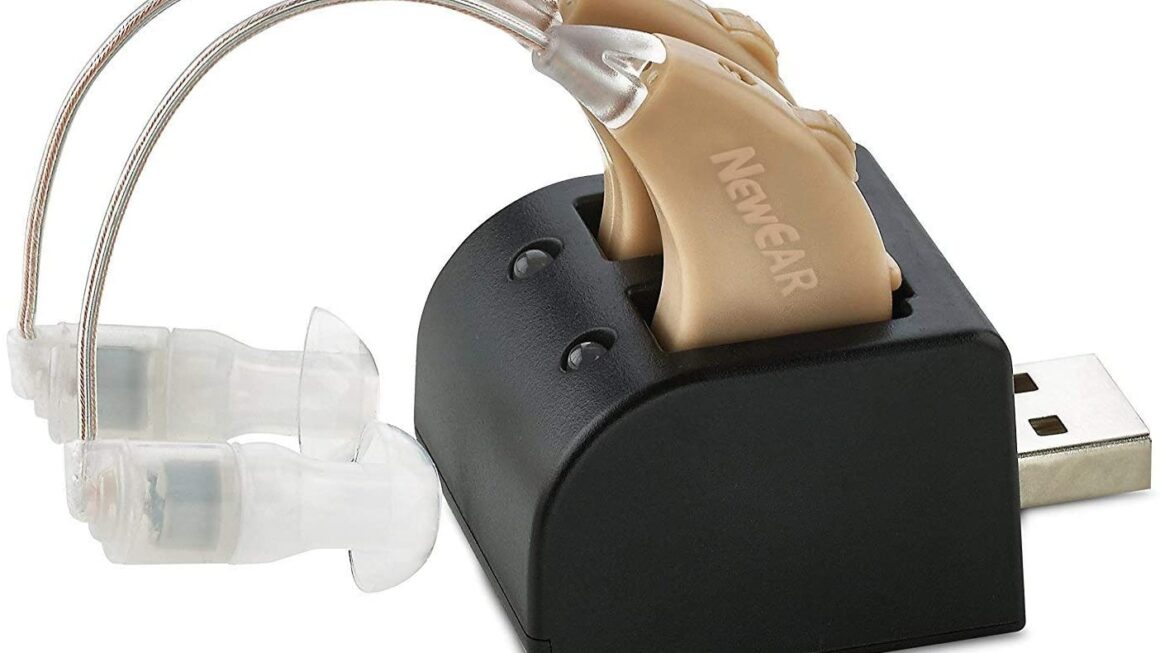Welcome to our blog post on the importance of wisdom teeth removal for oral health! If you’re one of the lucky ones who have never experienced any issues with your third molars, commonly known as wisdom teeth, then consider yourself fortunate. For many people, these late-blooming teeth can cause a range of problems that can impact not only their oral health but also overall well-being. In this article, we’ll delve into the purpose and function of wisdom teeth, discuss when they should be removed, highlight the risks and complications of keeping them, explore the benefits of removal, walk you through the procedure and aftercare process, touch on alternative options for managing problematic wisdom teeth, stress the importance of regular dental check-ups and monitoring them closely. So let’s dive in and uncover why getting those pesky wisdom teeth out might just be one decision that saves you from a world of pain!
What are wisdom teeth?
Wisdom teeth, also known as third molars, are the last set of teeth to emerge in the back corners of our mouths. These teeth typically make their appearance between the ages of 17 and 25, hence the name “wisdom teeth” as it is believed that they come with age and wisdom.
But what exactly is their purpose? Well, many experts believe that our ancestors needed these extra molars to help chew tough foods like roots, nuts, and raw meats. However, with advancements in our diets over time, these teeth have become less necessary for chewing and have often caused more problems than good.
In fact, most people don’t have enough space in their jaws to accommodate these additional four molars. As a result, wisdom teeth can become impacted or partially erupted. This means that they may get stuck beneath the gum line or only break through partially. Such situations can lead to pain, infection, tooth decay around neighboring teeth due to difficulty cleaning them properly.
While some lucky individuals may not experience any issues with their wisdom teeth at all – finding ample room for them within their jaw – others face a host of complications if left unattended. It’s important to understand that each individual case is unique when it comes to wisdom tooth eruption or impaction.
With this basic understanding of what wisdom teeth are and how they can potentially cause problems down the road let’s move on to discussing when it might be necessary to consider removing them for your overall oral health!
The purpose and function of wisdom teeth
Wisdom teeth, also known as third molars, are the last set of teeth to emerge in the back corners of the mouth. They typically appear between the ages of 17 and 25, a time when individuals are considered more “wise” or mature, hence their name.
The purpose and function of wisdom teeth can be traced back to our ancestors who had larger jaws and needed these additional teeth for chewing tough foods like roots, nuts, and meats. However, over time our diets have evolved and our jaws have become smaller. As a result, most people no longer have enough space in their mouths for these extra molars.
When wisdom teeth do not fully erupt or grow misaligned due to lack of space or other reasons, they can cause various oral health issues. Misaligned wisdom teeth may push against neighboring teeth leading to overcrowding or shifting of existing dental alignment. This can lead to pain and discomfort while eating or speaking.
Moreover, partially erupted wisdom teeth create pockets where food particles and bacteria can accumulate easily. This increases the risk of developing tooth decay (cavities) or gum disease (periodontitis). In some cases, an impacted wisdom tooth might even develop cysts that can damage adjacent bone structures.
Given these potential risks and complications associated with keeping wisdom teeth intact, many dentists recommend removal if there is insufficient space in your mouth for them to erupt properly or if they are causing any problems already mentioned above.
Removing problematic wisdom teeth early on helps prevent future dental issues such as infections around the affected area that could spread throughout your mouth if left untreated. It also eliminates the need for more extensive dental procedures later on when complications arise.
If you require wisdom tooth extraction surgery due to impaction or misalignment issues identified during routine dental check-ups or through symptoms such as pain/discomfort/swelling near your jawline; then it’s important not delay treatment since this could worsen existing conditions over time making extraction more challenging.
When should wisdom teeth be removed?
When should wisdom teeth be removed? This is a common question among individuals who are experiencing issues with their wisdom teeth. The timing for removal can vary depending on various factors, including the position and development of the teeth, as well as any associated symptoms or complications.
In general, it is recommended to have wisdom teeth removed during young adulthood, typically between the ages of 17 and 25. At this stage, the roots of the wisdom teeth are not fully formed yet, making extraction easier and less likely to cause damage to surrounding structures such as nerves or neighboring teeth.
However, there are cases where early removal may be necessary. If your dentist or oral surgeon determines that your wisdom teeth are causing overcrowding in your mouth or if they foresee potential problems such as impaction (when a tooth does not fully emerge from the gum) or infection due to difficulty in cleaning properly around these areas.
Even if you’re not experiencing any immediate issues with your wisdom teeth, it’s important to monitor them regularly through dental check-ups. Your dentist will evaluate their growth and position over time and recommend removal if they anticipate future complications.
Determining when to remove wisdom teeth requires careful consideration by a dental professional based on individual circumstances. By addressing problematic wisdom teeth promptly through appropriate treatment options like extraction when necessary,
you can maintain optimal oral health in the long run.
Risks and complications of keeping wisdom teeth
Risks and complications can arise when wisdom teeth are left untreated or not removed in a timely manner. These third molars often cause overcrowding, leading to misalignment of the other teeth. This can result in biting and chewing difficulties, as well as an increased risk of tooth decay and gum disease.
One common issue with impacted wisdom teeth is infection. When these teeth cannot fully emerge from the gums, bacteria can become trapped around them, causing inflammation and pain. In some cases, this infection may spread to nearby areas like the jawbone or sinuses.
Cysts and tumors are another potential complication of keeping wisdom teeth. Cysts are fluid-filled sacs that develop around impacted teeth, while tumors refer to abnormal growths in the oral cavity. Both conditions can lead to bone damage if not addressed promptly.
Furthermore, retaining wisdom teeth increases the risk of developing periodontal disease. The difficulty in accessing these back molars during oral hygiene practices makes it easier for plaque buildup to occur, leading to gum inflammation and potential tissue damage.
It’s important to note that each individual’s case is unique; therefore, consulting with a dental professional is crucial for evaluating specific risks associated with keeping wisdom teeth unremoved. Regular check-ups allow dentists to monitor any changes or issues that may arise over time.
While there may be instances where individuals experience no immediate problems with their wisdom teeth, it is essential to consider the potential long-term risks before deciding against removal.
Benefits of removing wisdom teeth
Removing wisdom teeth can provide several benefits for your oral health. One of the main advantages is that it helps prevent overcrowding in your mouth. Wisdom teeth often emerge in late adolescence or early adulthood when there may not be enough space for them to properly align with the rest of your teeth.
If there isn’t sufficient room, wisdom teeth can push against existing teeth, causing misalignment and crowding. By removing these extra molars, you can maintain proper alignment and prevent future dental issues.
Another benefit of wisdom tooth removal is the prevention of potential infections. When a wisdom tooth partially emerges from the gum line, it creates an opening where bacteria can easily enter and cause infection. This condition is known as pericoronitis and can lead to pain, swelling, and discomfort.
By removing impacted or problematic wisdom teeth, you reduce the risk of developing painful infections that could affect not only your oral health but also your overall well-being.
Furthermore, removing wisdom teeth can eliminate the possibility of cysts or tumors forming around them. These growths are relatively rare but have been associated with impacted wisdom teeth. By proactively removing these molars before they cause any complications, you significantly reduce the chances of developing such conditions later on.
Opting for wisdom tooth removal provides long-term benefits by avoiding potential dental complications like overcrowding, infections, and growths. It’s essential to consult with a dentist who will evaluate your specific situation to determine whether extracting your wisdom teeth is necessary for maintaining optimal oral health.
The procedure for wisdom teeth removal
The procedure for wisdom teeth removal is a common dental surgery that aims to remove the third molars, also known as wisdom teeth. This procedure is typically performed by an oral surgeon or a dentist with experience in oral surgery.
Before the actual extraction, the patient will undergo a thorough examination and evaluation to determine the position and condition of their wisdom teeth. X-rays may be taken to get a clear view of the roots and surrounding structures.
On the day of the procedure, local anesthesia or sedation may be administered to ensure comfort throughout the process. The dentist or oral surgeon will then make an incision in the gum tissue to access the tooth. In some cases, it may be necessary to remove small sections of bone around the tooth or divide it into smaller pieces for easier removal.
Once extracted, any remaining debris or fragments are carefully cleaned out from the surgical site. The incision is then sutured closed using dissolvable stitches that do not require removal.
Aftercare instructions will be provided by your dentist or oral surgeon, which should include information on managing swelling and discomfort through ice packs and pain medication if needed. Soft foods are usually recommended during recovery period while avoiding smoking and drinking through straws.
It’s important to follow these aftercare instructions diligently in order to promote proper healing and minimize complications such as infection or dry socket formation.
Undergoing wisdom teeth removal can help prevent future dental issues such as overcrowding, misalignment, decay, gum disease, and other potential complications associated with impacted or poorly positioned wisdom teeth.
Aftercare and recovery process
After undergoing wisdom teeth removal, proper aftercare and a smooth recovery process are essential for optimal healing. Here are some important tips to follow during this phase.
1. Swelling and discomfort: It is common to experience swelling and discomfort after surgery. Applying an ice pack on the affected area can help reduce swelling. Taking prescribed pain medications as directed by your dentist will also provide relief.
2. Oral hygiene: Maintaining good oral hygiene is crucial during the recovery period. Gently brush your teeth, avoiding the extraction sites, within 24 hours of surgery. Rinse your mouth with warm saltwater several times a day to keep it clean.
3. Diet modifications: Stick to soft foods like yogurt, mashed potatoes, scrambled eggs, and soups for the first few days following surgery. Avoid hard or chewy foods that could irritate the surgical site.
4. Rest and relaxation: Take it easy for a few days after the procedure to allow your body time to heal properly. Avoid any strenuous activities that may increase bleeding or delay healing.
5. Monitoring signs of infection: Keep an eye out for symptoms such as increased pain, excessive bleeding, pus discharge, or fever which could indicate an infection at the extraction site.
Remember every individual’s recovery process can vary slightly so always consult with your dentist if you have any concerns about your progress.
Alternative options for managing problematic wisdom teeth
When it comes to problematic wisdom teeth, removal is not the only option available. Depending on the specific situation and condition of your teeth, there are alternative approaches that can help manage the discomfort and prevent further complications.
1. Medication: In some cases, over-the-counter pain relievers or prescription medications may be sufficient to alleviate pain and inflammation caused by problematic wisdom teeth. It’s important to consult with a dentist or oral surgeon before taking any medication.
2. Dental Splints: For patients experiencing jaw pain or difficulty opening their mouths due to impacted wisdom teeth, dental splints can provide temporary relief by helping realign the bite and reduce pressure on surrounding structures.
3. Orthodontic Treatment: If overcrowding is an issue caused by erupting wisdom teeth, orthodontic treatment such as braces or aligners may be recommended to create enough space in the mouth for proper alignment of all teeth.
4. Regular Monitoring: Sometimes, if there are no immediate complications or discomfort associated with wisdom teeth, regular monitoring through dental check-ups may be advised. This allows dentists to keep track of any changes and intervene if necessary.
It’s important to note that these alternative options should always be discussed with a qualified dental professional who can evaluate your individual case and recommend the best course of action based on your specific needs.
Importance of regular dental check-ups and monitoring of wisdom teeth
Regular dental check-ups and monitoring of wisdom teeth are crucial for maintaining good oral health. By staying diligent with your dental visits, you can catch any potential issues with your wisdom teeth before they become major problems.
During these check-ups, your dentist will thoroughly examine the growth and development of your wisdom teeth. They may take x-rays to get a clear picture of their position in your mouth. This allows them to determine if there is enough space for the wisdom teeth to come in properly or if they are impacted and causing damage to neighboring teeth.
Monitoring the progress of your wisdom teeth is important because even if they initially appear healthy, complications can arise over time. Wisdom teeth that do not have enough room to fully emerge can become impacted or partially erupted, leading to pain, infection, swelling, and difficulty cleaning around them. In some cases, cysts or tumors can develop around impacted wisdom teeth.
By keeping up with regular dental check-ups and monitoring of your wisdom teeth, you give yourself the best chance at early detection and intervention when necessary. Your dentist will be able to discuss all options available for managing problematic wisdom teeth based on their findings during these appointments.
Remember that prevention is key when it comes to oral health. Regular dental visits allow for proactive measures like professional cleanings and preventive treatments that help maintain optimal oral hygiene.
In addition to seeing a dentist regularly, it’s important for individuals with developing or existing problems related to their wisdom teeth – such as pain or swelling – should seek immediate attention from a dental professional rather than waiting until their next scheduled appointment.
Conclusion
Wisdom teeth removal is an important procedure for maintaining optimal oral health. These third molars often cause various issues and complications if left untreated. By understanding the purpose and function of wisdom teeth, knowing when to remove them, and being aware of the risks involved in keeping them, individuals can make informed decisions about their oral health.
The benefits of removing wisdom teeth are numerous. It can alleviate pain and discomfort caused by impacted or overcrowded teeth. It reduces the risk of developing infections, decay, gum disease, cysts, and tumors associated with problematic wisdom teeth. Additionally, removing these molars can prevent misalignment or shifting of neighboring teeth.
The procedure for wisdom tooth removal usually involves a simple surgical extraction performed by a dental professional. This process ensures minimal discomfort during the operation. Afterward, proper aftercare is crucial to facilitate healing and minimize potential complications.
While alternative options such as monitoring or managing problematic wisdom teeth may be suitable for some individuals depending on their unique circumstances, it is essential to consult with a dentist regularly regarding any changes or concerns related to these molars.
Regular dental check-ups play a vital role in monitoring the development and impact of wisdom teeth on overall oral health. Dentists have the expertise to identify early warning signs that may require intervention through extraction or other interventions.
By prioritizing regular dental visits and addressing any issues promptly before they escalate into more significant problems, individuals can maintain good oral hygiene throughout their lives.
So remember: don’t overlook your wisdom teeth! Seek professional advice from your dentist about whether they should be removed based on your specific situation. Taking proactive steps today will lead to better long-term dental health tomorrow!
Remember that Wisdom Teeth Removal in Peoria plays an integral role in maintaining optimal oral health – so schedule that appointment with your dentist today!












